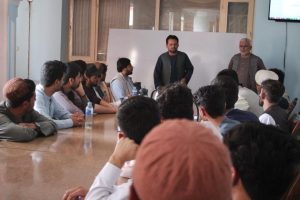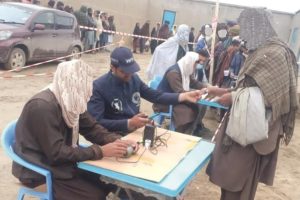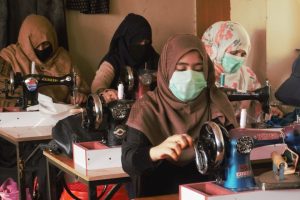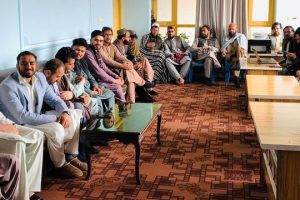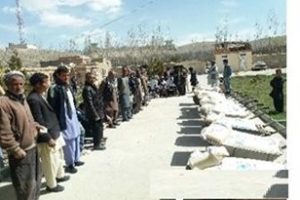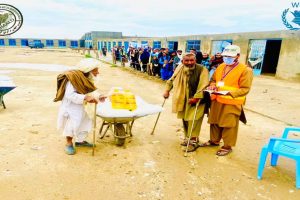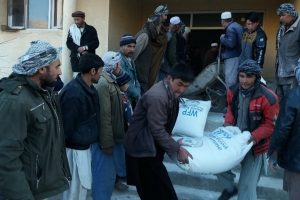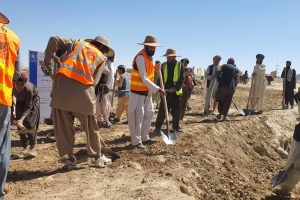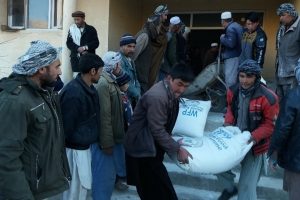HAALO is currently implementing the Maternal and Child Benefit Program (MCBP), in partnership with the World Bank and WFP. (MCBP) is designed to address critical health and nutrition challenges faced by women and children in the Giro District of Ghazni Province. The program focuses on improving maternal and child health outcomes through enhanced nutrition, healthcare services, and community awareness, with a particular emphasis on reducing malnutrition and improving overall well-being.
Program Components:
- Maternal Health and Nutrition:
- Nutrition Support for Pregnant and Lactating Women: The program provides targeted nutrition assistance, including supplementary feeding, to pregnant and lactating women. This support ensures that women receive adequate nutrients during critical periods, reducing the risks of maternal and infant malnutrition.
- Prenatal and Postnatal Care Services: HAALO facilitates access to essential prenatal and postnatal healthcare services, including regular check-ups, micronutrient supplementation (iron and folic acid), and safe delivery support. This helps improve maternal health outcomes and reduces complications during childbirth.
- Child Nutrition and Development:
- Infant and Young Child Feeding (IYCF) Programs: The MCBP promotes optimal breastfeeding practices and proper complementary feeding for children under two years of age. Educational sessions are provided to mothers and caregivers, focusing on the importance of exclusive breastfeeding for the first six months and the timely introduction of nutrient-rich complementary foods.
- Screening and Treatment for Malnutrition: HAALO conducts regular malnutrition screening for children under five using the Mid-Upper Arm Circumference (MUAC) method. Children identified as malnourished receive therapeutic feeding or referral to health centers for specialized care.
- Community-Based Health Education:
- Maternal and Child Health Awareness Campaigns: The MCBP organizes community outreach programs to raise awareness about maternal and child health, proper nutrition, hygiene, and sanitation. These campaigns are conducted through women’s groups, community health workers, and local media.
- Capacity Building for Healthcare Workers: HAALO trains local health workers and volunteers on maternal and child health care, nutrition, and malnutrition treatment. This capacity-building initiative strengthens the local healthcare system and ensures that essential health services are accessible to vulnerable communities.
- Food and Cash Assistance for Vulnerable Families:
- Targeted Food Support: To address immediate food insecurity, HAALO distributes fortified food rations to households with malnourished children and pregnant or lactating women. These rations are designed to improve dietary diversity and meet the nutritional needs of vulnerable family members.
- Cash Transfers for Nutrition: In areas where markets are functional, the program provides cash transfers to families, allowing them to purchase nutritious food and improve their household dietary intake. This flexible support empowers families to make choices that best meet their needs.
- Monitoring and Evaluation for Improved Outcomes:
- Data Collection and Reporting: HAALO conducts regular monitoring of health and nutrition indicators, including rates of malnutrition, maternal health outcomes, and child growth patterns. This data informs program adjustments and ensures accountability to donors and beneficiaries.
- Impact Assessments: Periodic evaluations are conducted to assess the impact of the MCBP on maternal and child health and nutrition, ensuring that the program meets its goals of reducing malnutrition and improving health outcomes in Giro District.
The Maternal and Child Benefit Program (MCBP) is a comprehensive health and nutrition initiative aimed at protecting the well-being of mothers and children in one of the most vulnerable areas of Ghazni Province. Through targeted nutrition support, healthcare services, and community education, the program strives to break the cycle of malnutrition and improve long-term health outcomes for women and children


